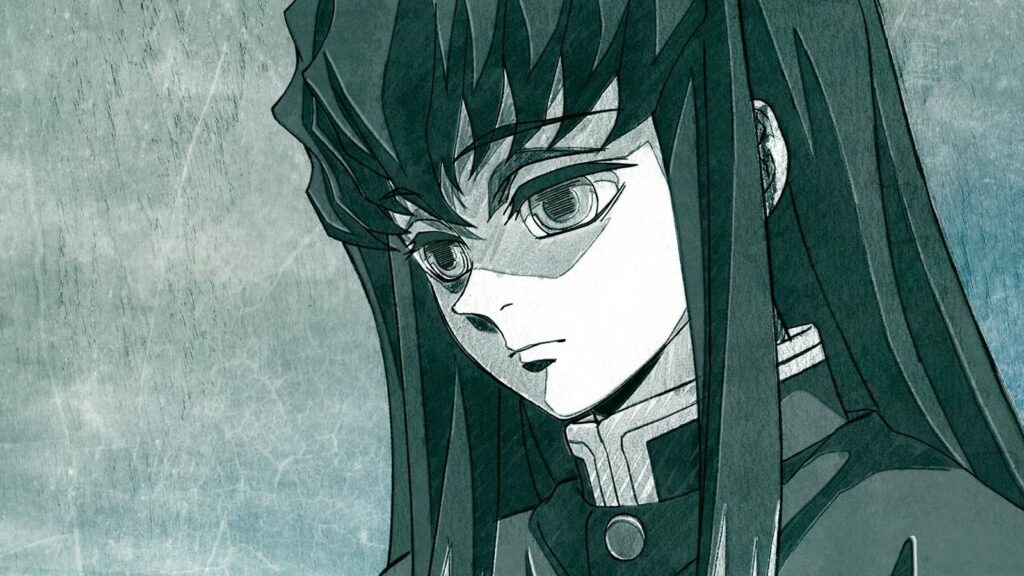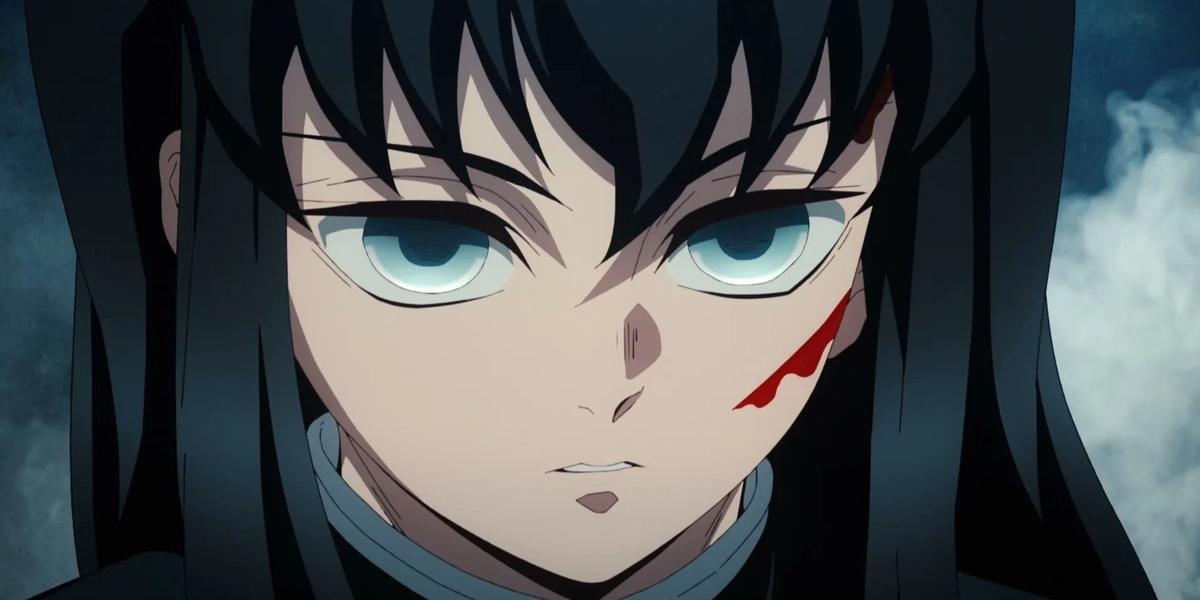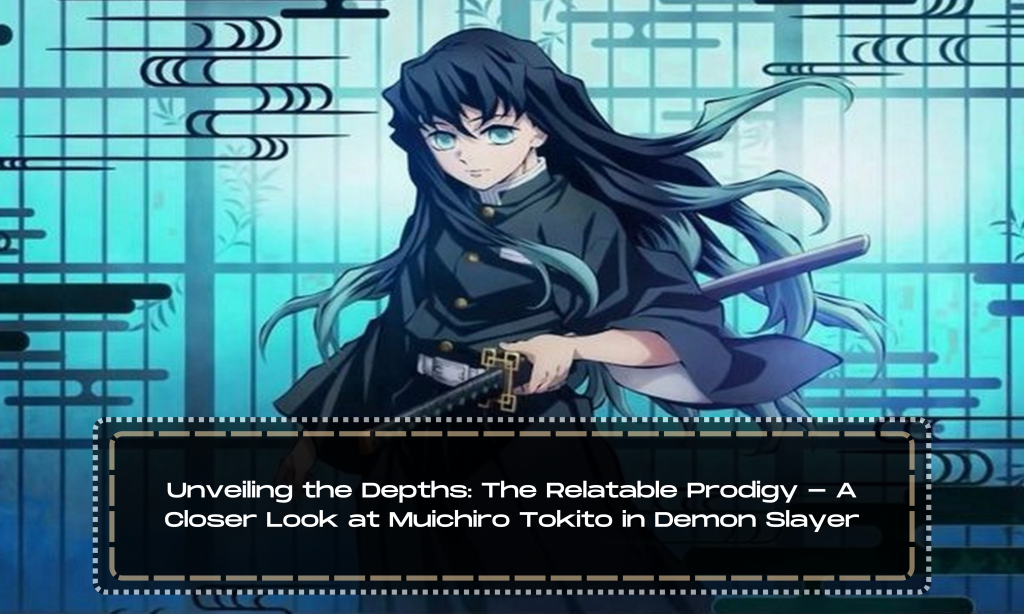Unveiling the Depths: The Relatable Prodigy – A Closer Look at Muichiro Tokito in Demon Slayer

In the unfair and unjust world that is anime fiction, there are characters who are naturally born with greater strength than their counterparts. This is usually the result of some god-given ability or unexplained plotline. But the question we need to keep in mind is: do they use this potential to serve and protect those around them, maybe prey on the weak, or do they just stare aimlessly in the clouds in pure ignorance of the world around them?
You see, the world of Demon Slayer is filled with a lot of hardships and trauma, as I’m sure any society rampaged with flesh-eating monsters would be. For the unfortunate individuals who have experienced the gut-wrenching feeling of losing a loved one, it leads them down the grueling path of becoming a Demon Slayer and projecting these feelings onto demonkind that ruined their lives.
However, there’s one character in particular, a beacon of hope, a 14-year-old Hashira with his head in the clouds, a foggy vision of his past, present, and future, and an emotionless outlook that left me genuinely curious.
So, join me as we take a close look at the prodigy that is the Mist Pillar, Muichiro Tokito, and examine why I believe he’s a Demon Slayer and potentially anime’s most relatable prodigy. Let’s dive into today’s blog.
As a disclaimer, there will be spoilers in this blog, going into some of the later manga chapters, so proceed with caution. Our first glimpse of Muichiro Tokito is when Tanjiro and Nezuko are standing trial in front of the Hashira, as they discuss whether or not the two can fight together as human and demon. The only thing is, instead of having an active stance on the situation, as is clear with the other Hashira, he’s just staring off into the distance, wondering about a particular shape of a cloud.
Now, this, of course, was done on purpose. It would be weird if it wasn’t. It’s a well-known anime shtick that the one who cares the least about seemingly serious situations in front of them is always a complete savage in battle. These are characters like Yami from Black Clover, Saitama from One Punch Man, or Saiki K from Psychi-K.
But more so than this typical anime trope, the introduction to his character makes us ask a deeper question: how did this young kid end up this way? And I think this question is a common theme that Demon Slayer absolutely nails with many of its characters.
The glue that holds many of its characters together is the simple phrase: “You can’t judge someone based on who they are on the surface.” Zenitsu is cowardly on the outside but would never hesitate to put his life on the line for those he cares about. Tamayo is a demon but does everything in her power to put an end to Muzan’s tyranny. And with Muichiro, the airheaded kid is hiding something much more than meets the eye.
But before we head down that route with his character, let’s discuss what I believe Gotoge wanted us to think about when we first see him in action. When his character is finally put in the spotlight during the Swordsmith Village Arc, he’s seen arguing with the swordsmith Kotetsu over the key to the Yorichi Type Zero doll. In a matter of a handful of panels, Muichiro knocks down Tanjiro twice, threatens to kill Nezuko, reprimands Tanjito for wasting his time, and describes how a swordsmith’s job is meaningless.
Without getting to know this character for more than a chapter, we already get such strange and pretty annoying vibes from this guy. What business does a 14-year-old kid have with mistreating the very same people that let him fight against demons? Why does he share this cold, distant personality like his fellow Hashira, Giyu Tomioka? What lies beneath the surface of this character that we’re not yet seeing?
Fast forward a handful of chapters as we see Muichiro fighting against Upper Moon 5, Gyokko, trapped in his Blood Demon Art. We start to see memories flicker in and out of his mind, and what was initially annoyance with this character quickly turned into compassion. This is when I realized Muichiro lost everything, even his memories. In the words of who he believed to be Tanjiro at first, a voice reaches out to him, saying that helping other people ends up being beneficial for oneself. People are unbelievable creatures who can draw out unbelievable strength for the sake of someone else.
And at that moment, understanding exactly who spoke those words, Muichiro breaks the water bubble he’s trapped in, dispersing it into mist, symbolic of the memories he had locked away filling his brain. Although quick, this is one of my favorite character moments in all of Demon Slayer. At long last, we’re able to see exactly what’s below the surface and why the Mist Pillar is the way he is.
You see, Muichiro was one of two identical twins, his brother being named Yuichiro. Their dad, a kind and humble woodcutter, fell off a cliff and died trying to get medication for their mother, who suffered from bronchitis. Both parents died and left the twins orphaned at the age of 10. Muichiro, similar to his father, had always had the tendency to help others, but his brother didn’t think in the same way. Pessimistic and bitter over the death of their parents, Yuichiro had the belief that no matter how much good you do, it’s all a pointless effort.
This clash of ideals caused Yuichiro to label the “mu” in Muichiro as meaning “the ineffective.” Even the leader of the Demon Slayers’ wife came to visit the brothers, but it ultimately fell on deaf ears as Yuichiro sent her away. The rift between the brothers was bigger than ever until a demon attacked on one fateful night. With his brother being mortally wounded and Muichiro jumping into a fit of rage, we learned that his brother never hated Muichiro at all. He actually loved him so much to the point where he used harsh words to shield him from the dangerous and cruel world they were exposed to.
With the trauma of the events being too great to bear, Muichiro not only suppresses these memories deep within him, he also takes on the pessimistic and cold persona of his deceased brother as a coping and protective mechanism. All in all, this is an unfiltered look we get of who Muichiro is deep down, and it’s something that I think a lot of us can relate to. While it’s not to the extent of swapping personalities, I know that I absolutely use the traumas in my life to form the outlook I have on the world.
Knowing this about Muichiro’s past made me understand that the cold boy harassing a swordsmith a couple of chapters ago is really just a sad, traumatized, and lonely individual coping in the only way he knows how, which was an incredibly tragic realization for me. But within this dark life, there’s a beacon of light that shines for Muichiro. Words that remain with him and embody the essence of his character. During his dying breaths, his brother explains to Muichiro that the “mu” in his name never meant “the ineffective” but rather “the infinite.”
His brother’s final words hold true for Muichiro, as his entire character arc encapsulates the unlimited potential of not only his demon-slaying ability but also his compassion and willingness to give to others. As a Demon Slayer, he mastered a breathing style and became a Hashira in only two months. He was the first of the main Hashira to turn his Nichirin Blade red and defeated an Upper Moon all by himself. As a person, even with his body cut in half by Kokushibo, he refused to give up, sacrificing everything he had in order to give his fellow Demon Slayers a chance at victory.
It’s this infinite landscape of our ability to give and improve that hit me really hard. Growing up, I had always doubted myself, fed into my insecurities, or even just wouldn’t attempt something because I didn’t think I would be any good at it. Similar to Muichiro, I masked my feelings of potential embarrassment or shame with a different reality, one where I wouldn’t even have to worry about those things in the first place.

Reflecting on Muichiro’s journey now and where he’s come from, it’s truly something I needed during those times of self-doubt. While it’s not always a reasonable expectation to be a prodigy like Muichiro, with enough time, dedication, and practice, there’s an unlimited ceiling of potential that awaits you. Muichiro’s journey teaches us that although talent may take you somewhere faster, going with others will take you much farther. Like an endless fog of mist being unveiled before his eyes, I believe Muichiro is someone I really resonated with and grew to understand the depth of his character as the story progressed.
I learned that it’s okay to step outside your comfort zone and that the perceptions in your head are just blockades set in your mind, holding you back from all the amazing things you’ll do. If you enjoyed this blog, consider liking, subscribing, commenting your thoughts, or supporting the channel in any way you see fit. As always, it’s been Till from Anime Analysis, and until next time, stay curious, anime fam. Peace.
That’s me, Andreea Blaga, author of the blog anime-everything.com. I work as a content creator in the US. I am also passionate about Japanese Anime.


Related post
The Art Style of Solo Leveling: A Visual Feast for Readers
On this pageUnveiling the Depths: The Relatable Prodigy – A Closer Look at Muichiro Tokito...
Oct
Why JJBA is the Most Bizarre Anime Ever Made
When discussing iconic anime series, one title that consistently stands out is “JoJo’s Bizarre Adventure,”...
Oct
The Impact of Wind Breaker on the Sports Anime Genre
The sports anime genre has seen numerous iterations over the years, captivating audiences with its...
Sep
Decoding the Enigmas: Exploring the Hidden Secrets of Gravity Falls
“Gravity Falls,” created by Alex Hirsch, is a beloved animated series that has captivated audiences...
Aug
The Rise of Kaiju No. 8: A New Era of Monster Manga
The world of manga has always been rife with innovative storytelling and vivid illustrations, but...
Aug
Character Study: Korra and Aang’s Legacy
In the richly woven tapestry of the “Avatar” universe, the characters of Korra and Aang...
Jul